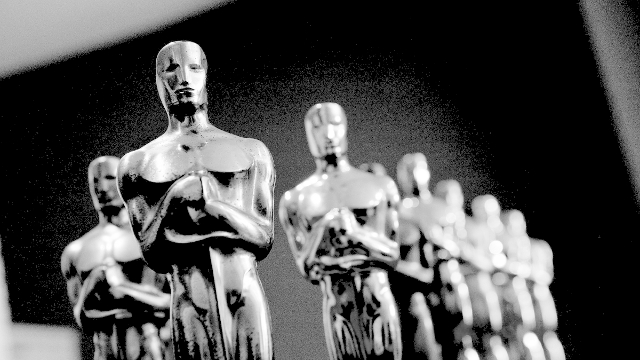If there is one truth being trumpeted on all sides of the OscarsSoWhite controversy, its that the Academy itself does not finance, produce, or greenlight films. As we saw in the first week of the controversy, and as Lupita Nyong’o reiterated this week, the academy is just a single, very visible symptom of the larger illness in Hollywood. As we’ve repeatedly pointed out, Hollywood seems downright averse to greenlighting films of any budget by any non-straight white male filmmaker. This lack of projects is the problem that manifests itself with an increased urgency through the back to back years of all white acting nominees.
Enter the Director’s Guild of America. Paris Barclay is an award-winning director of 100+ episodes of television. He won both DGA and Emmy awards for NYPD Blue. His episodes for Glee and In Treatment won Peabody Awards. He’s won several Image awards and was inducted into the NAACP Hall of Fame. First elected in 2013, Paris Barclay is also the first African-American and the first openly gay president of the DGA. The DGA also does not finance or produce movies of their own accord.
Back in December, well before the Oscar nominations were announced, the DGA released a report on the diversity of Hollywood directors in 2013. They found that Hollywood’s output isn’t as diverse as they’d like to say. Examining the 376 movies released in 2013, 84.2% of the films had directors were Caucasian men. Making a detour into gender, only 6.4% of the films were directed females of ANY race. Including men and women, only 12.5% of the films had minority directors of either gender.
Since the awards controversy, Paris has issued statements lambasting the studios for not taking action. He is trying to take the full force of the controversial urgency and push it up against the studio system.
Statements, statistics, pleas and calls for action have done little to move the needle. It is time to be clear – structural changes are needed. Those who control the pipeline and entryway to jobs must move beyond the ‘old boy’ network and word-of-mouth hiring. They must commit to industry-wide efforts to find available diverse talent that is out there in abundance, or to train and create opportunities for new voices entering our industry. Rules must be implemented to open up the hiring process and rethink the idea of ‘approved lists.’
He added
A small handful of executives had spoken of their intentions to improve – none have put forward a clear plan of action. Only when those who control the pipeline decide to individually, or jointly, take concrete action will we see significant change.
Yesterday, in a promotion for the DGA awards to be presented tomorrow night, he issued a statement that the studios know they’re on notice…but…wait.
The film-based DGA Awards resemble the exact same makeup as the Academy Awards. Alejandro G. Innaritu, for his tireless movie about Native Americans as filtered through the legend of a white guy, is the lone minority in the feature film category. Similarly, Fernando Coimbra (A Wolf at the Door) is the sole minority in the First Feature category. Of both categories, Marielle Heller for The Diaries of a Teenage Girl is the only female nominee in the First Feature Category. The documentary category fares a little better, by nominating Liz Gerbus’ What Happened, Miss Simone?, Asif Kapadia’s Amy, and Jimmy Chin & Elizabeth Chai Vasarhelyi’s Meru.
Much like the diversity divide that we’ve witness between television and cinema, the DGA has a similar split between television and cinema. In television land, you’ll find Leslie Linka Glatter, Angela Bassett, Chris Rock, and Dee Rees among others nominated in various categories. Though white men still make up the vast majority of the nominations in those television categories, there’s still a push for inclusiveness.
The DGA isn’t a studio. It isn’t even made up of producers. It is made up of Directors, all of whom are seeking out funding for their own projects. Though Paris Barclay can say that they’re “turning up the heat” on the studio system, the truth bears itself out. Something fundamental needs to change, and it needs to change now.


